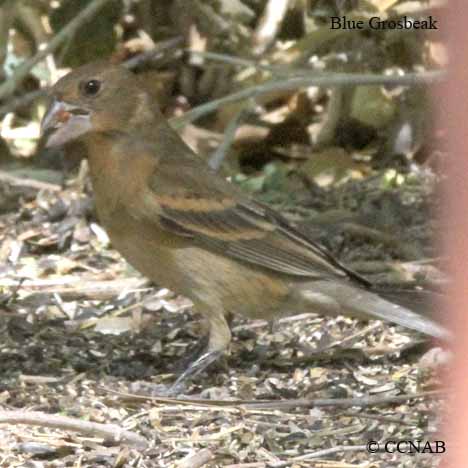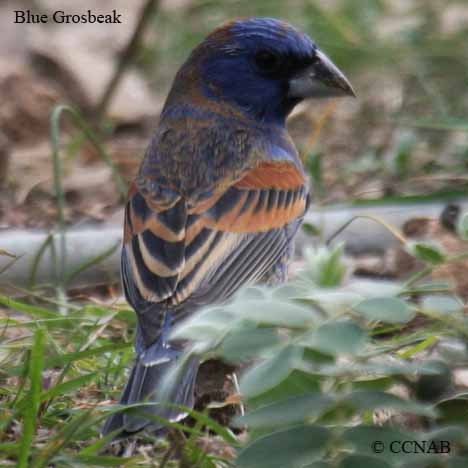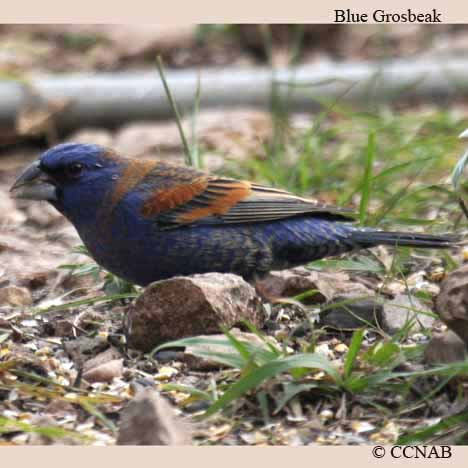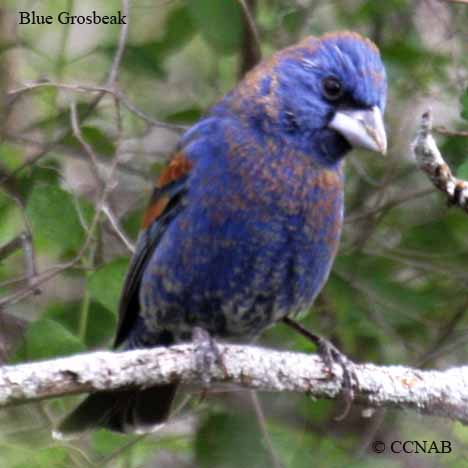North American Bird Search Box
This search box can be used to find bird species using bird's english, french or latin name, or to identify bird by its 4 letter Alpha Code
Field Guide for all the Birds of North America
Blue Grosbeak
4 Letter (english names) Alpha Code: BLGR (1)
Guiraca bleu
Passerina caerulea
Information, images and range maps on over 1,000 birds of North America, including sub-species, vagrants, introduced birds and possibilities
Species: The Blue Grosbeak (Passerina caerulea) has similar colours to the Indigo Bunting although it is a bigger bird with a larger body and bill. The blue plumage may appear black in direct sunlight. This grosbeak can be seen in thickets along roads, feeds on plants in fields and is a seed eater.
Distinctions: Sexually dimorphic, the male has a mostly dark blue body, black areas around the bill, eyes and lores, rusty epaulettes and wing bars and has a large bill. It has a blue back with dark streaking. Female is light brown, brown back with light streaking, light brown wing bars. The juvenile is similar to female, some blue colouring seen in wings and undertail.
Voice: Call notes can be soft warbling in nature or metallic. Usually, stays unseen in thickets but will perch up on an open branch when singing.
Nesting: Four to five pale blue eggs. Nest constructed in clumps of plants on the ground, using grass, weeds and other small pliable materials.
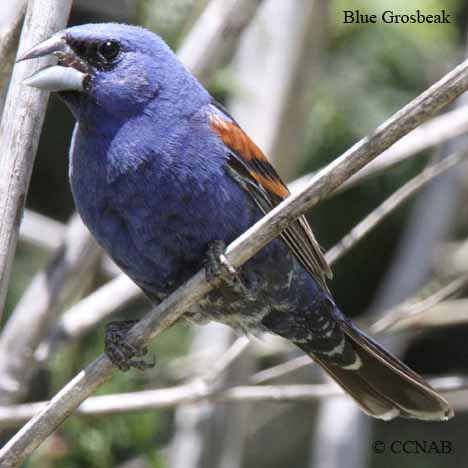
Life, Habitat & Pictures of North American Grosbeaks
| B L | W W | W | Family | Latin Name |
|---|---|---|---|---|
| 6.75" 17.14cm | 11" 28cm | 1.0 oz 28.34g | Cardinalidae | Passerina caerulea |
North American Bird Videos
North American Bird Calls
- Click here
- Click here
- Summer
- Year Around
- Winter
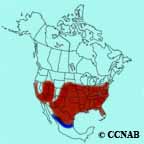
Distribution: Found in fields and weedy areas, prefers to be close to water. Resides in thickets and riparian landscapes. Seen along the eastern coast, north to New York and are reported even more north, from time to time. Going west, as far as California and back through Texas to the southern tip of Florida.
Reference to Other Bird Site:
ABA - American Birding Association This site represents an organization that maintains official records of all birds species that have been proven to have been seen inside the perimeters of the North American Continent and the surrounding bodies of water. Regular revised versions are posted to keep the bird list current at all times. This is the list used by all serious birders over their lifetime. You may be aware of the movie called the "Big Year". It was with this list that all the competing birders used in an attempt to set a new record as to how many bird species that could be seen by an individual birder in one calendar year.
